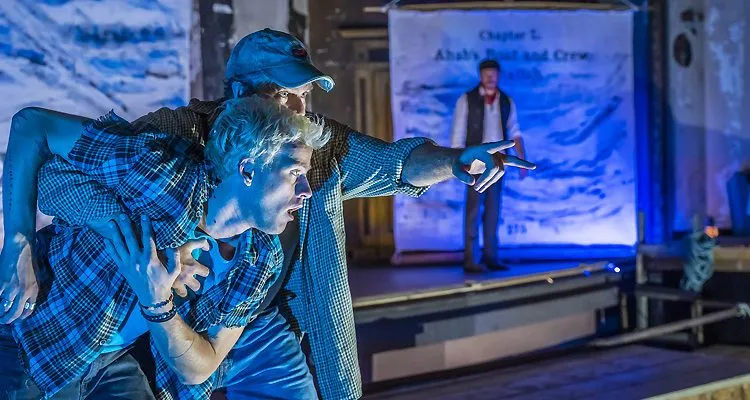A provocative new stage adaptation of the classic novel Moby Dick is causing quite a stir in the theater world. Playwright Arlo Bittman’s iconoclastic interpretation portrays Captain Ahab not as a brooding obsessive, but rather a heroic figure raging against the indifference of nature. This creative re-imagining has divided critics and ignited heated debate about the essence of Herman Melville’s epic tale.
Bittman’s adaptation casts the white whale Moby Dick not as a symbol of evil, but rather as a representation of unchecked natural forces. By making Ahab’s quest more noble and less a result of his own ego, the playwright aims to challenge long-held assumptions about the meaning behind Melville’s masterwork. Supporters of the play praise Bittman for adding diversity and new perspective to artistic interpretations of this revered novel. Detractors argue he distorts Melville’s original message and undermines the psychological complexity at the heart of the story.
While Bittman’s re-invention could be considered iconoclastic, he defends it as an effort to keep a classic fresh and relevant rather than an attack on Melville. By questioning standard readings and fostering debate, this provocative adaptation brings new vitality to Moby Dick, even as it divides audiences. The play’s continued popularity and the lively discussion it spurs reveal the value of revisiting canonical texts with a modern lens. Though controversial, Bittman’s play serves to keep Melville’s masterwork alive in our cultural consciousness.
The run of this unorthodox production has been extended due to its popularity and the energetic discourse it has sparked. More than destructive myth-breaking, works like this remind us that reinterpreting revered tales in new ways can revitalize our appreciation for them. Rather than undermining giants of literature, reimaginings like Bittman’s add diversity of expression and perspective, bringing vibrance and relevance to even the most venerable classics.

